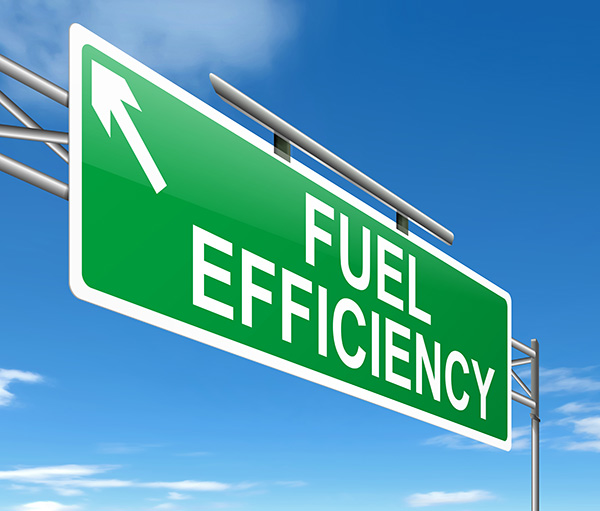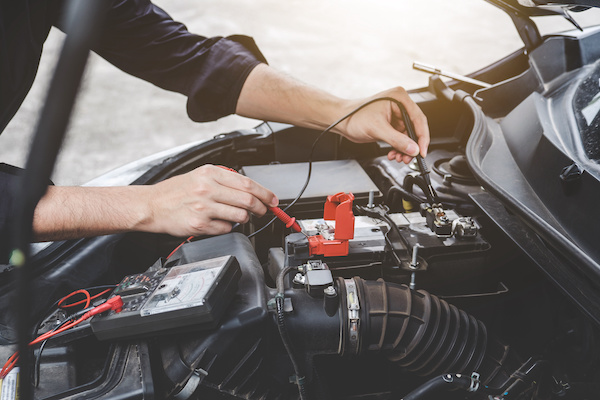Posted on 3/19/2025

Heather is a longtime customer of Fox Run Auto. She knows she can depend on our team to provide honest service and quality results time and time again. Heather recently visited our shop for some vehicle maintenance services. Here is what she had to say: "Nothing but the highest praise," Heather writes in her online review. "I am very hesitant about trusting mechanics due to being very naive and uneducated when it comes to cars and caring for them. I have never questioned anything they have mentioned." Building a strong level of trust with our customers is always our top priority at Fox Run Auto. Whether you know a lot about cars or don't know anything, our goal is to make you feel comfortable with every decision you make about vehicle maintenance or repair. We are always happy to answer any questions and provide you with as much information as you need to make ed ... read more
Posted on 3/12/2025

As we welcome spring, it's time to shake off the winter blues and get your car ready for the road ahead. St. Patrick’s Day reminds us that green means go—but only if your vehicle is in top shape! Here are some essential spring maintenance tips to ensure smooth driving as the seasons change. 1. Check Your Fluids Winter can be tough on your car’s fluids, including engine oil, coolant and windshield washer fluid. Top them off or replace them as needed to keep your engine and other systems running efficiently. 2. Inspect Your Tires Temperature fluctuations can affect tire pressure, and winter conditions may have taken a toll on your tread. Check for proper inflation and any signs of uneven wear to ensure optimal traction and fuel efficiency. 3. Test Your Battery Cold weather can w ... read more
Posted on 3/5/2025
.jpeg)
As winter starts to fade away, it's time to give your car the attention it needs to transition smoothly into spring. Cold temperatures, road salt and potholes can take a toll on your vehicle, making a seasonal checkup essential. Follow this spring car maintenance checklist to ensure your car is road-ready. 1. Check and Top Off Fluids Fluids are the lifeblood of your vehicle. Inspect and top off engine oil, coolant, brake fluid, transmission fluid and windshield washer fluid. If it's time for an oil change, don’t delay—it’s key to maintaining engine health. 2. Inspect the Battery Cold weather can weaken your battery. Check for corrosion on the terminals and ensure it holds a strong charge. If your car has been slow to start, consider having the ... read more
Posted on 2/28/2025

If you’ve noticed that you’re making more trips to the gas pump than usual, you’re not alone. A drop in fuel efficiency can be frustrating, especially when you’re used to getting a certain number of miles per gallon. While fuel economy can fluctuate slightly due to weather, driving habits, and road conditions, a sudden or consistent decline is often a sign that something is wrong with your vehicle. Whether it’s an issue with tire pressure, engine components, or fuel system efficiency, identifying the cause early can save you money and prevent costly repairs down the road. Worn-Out Spark Plugs and Engine Misfires Your engine relies on a precise mixture of air and fuel to run efficiently. When spark plugs wear out, they fail to ignite the fuel properly, leading to misfires, incomplete combustion, and wasted fuel. If your car has been feeling sluggish or hesitating when you accelerate, failing spark plugs may be the culprit. Replacing them ... read more
Posted on 2/26/2025

Regular tune-ups are essential for keeping your car running smoothly and efficiently. Over time, parts wear out, fluids degrade and minor issues can develop into major problems if left unchecked. But how do you know when it’s time for a tune-up? Here are some key signs to watch for: Signs Your Car Needs a Tune-UpDecreased Fuel Efficiency—If you find yourself filling up the gas tank more often than usual, it could be due to dirty spark plugs, clogged fuel injectors or a failing oxygen sensor. A tune-up can help restore fuel efficiency. Slow Acceleration or Loss of Power – If your car feels sluggish when you press the gas pedal, it might be struggling due to a worn-out air filter, fuel system issues ... read more